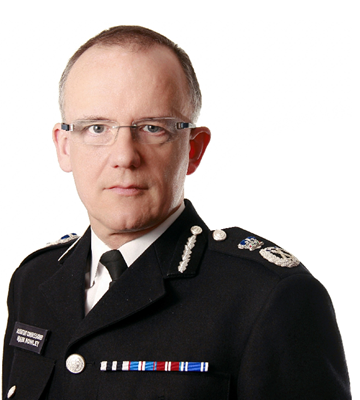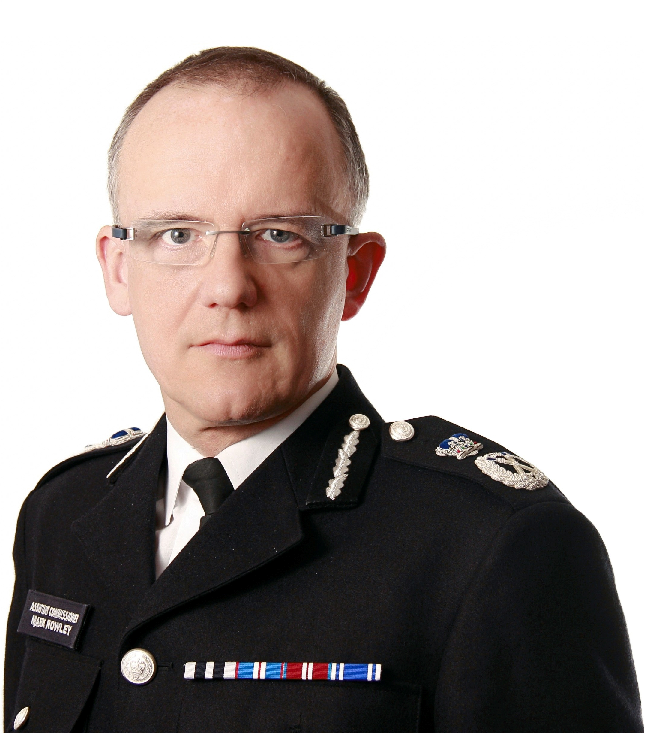21 May 2015
We now face perhaps one of the biggest challenges in our history - the threat from international terrorism.
National Lead for Counter-terrorism, Assistant Commissioner Mark Rowley, addresses the Police Federation Annual Conference in Bournemouth.
AC Rowley:
We now face perhaps one of the biggest challenges in our history - that of the current and future threat from international terrorism.
Whilst the current focus is understandably on the threat posed by ISIL, I should first make the point that the Syria-related challenge is just over a half of the work of the CT network.
The level of terrorist activity is as high as it is broad and complex. It ranges from planning sophisticated and coordinated attacks against strategic targets to crude, spontaneous acts of violence perpetrated by self-starting lone actors.
In the UK over 700 extremists are known to have gone (to Syria), a number steadily growing. Around half of those British extremists are believed to have returned. Many will be militarised and further radicalised - and will shape the threat in the UK for the foreseeable future.
There is increasing evidence of links between those involved in gangs, neighbourhood drug-dealing and low-level criminality with extremists, radicalisers and would-be terrorists.
Those vulnerable to joining a gang can be as attracted to joining a terrorist cause. And we are seeing this happen again and again with many of today's terrorists being yesterday's street criminals.
And when gangs and extremists come together there are potentially grave consequences. Especially when you consider some of these gangs have access to firearms.
While this is a concerning development we are somewhat reassured that access to high-powered weaponry is extremely difficult in Britain.
Which is largely in thanks to years' of investment by the authorities in stemming the flow of devastating military-grade weapons, which are commonly seen on the Continent.
Now when I say 'gangs' in this context I do not mean the drug cartels or organised criminal enterprises whose objectives are solely financial - these groups feature extremely rarely in our counter terrorism operations.
I am talking about the street gangs and loosely affiliated groups of misfits, dropouts and criminals. The sort of law-breakers that we all come across in day to day policing - especially in our towns and cities.
And this is just one reason why the police's role in countering terrorism is so important.
Vulnerable people
Another concerning development is the deliberate targeting by recruiters and extremists of vulnerable people, including those who are homeless, in trouble with the police or with mental health problems.
We have also seen young people from homes with a history of domestic violence leave their families to head to Syria.
Young people from troubled families or chaotic lives can find their place and an identity in extremism. Those failing at school or at life or those with mental illnesses are vulnerable to a narrative that offers self-belief and promised rewards.
These often impressionable people are being manipulated to carry out acts of violence.
But it is not just the vulnerable who fall for the extremist call to action. ISIL are also able to attract more 'successful' candidates, including 'Grade A' students, professionals, doctors and teachers, who are persuaded - despite ISIL's brutality - to join them and even bring their families along too.
Another place where radicalisation is a factor is in prison. Being in prison is becoming a key enabler for extremist activity. The numbers of prisoners with an extremist mind-set is increasing and unless there is rapid and resolute effort to tackle this we face a future where such prisoners become even more extremist and also radicalise others.
One thing that concerns me is that more than a third of the 700 British travellers have no previous CT history with us. That creates massive challenges both of a growing cohort of terrorists and huge uncertainty as we try to spot those who might be the next person to step towards terrorism.
So, as we have heard the terrorist threat is 'severe'. Confronting it is challenging at best. But now we have an operational context that is making that challenge more and more difficult.
We are seeing an increasing threat emanating from unstable countries and failed states - from which terrorists seek to plot attacks against us. And due to dysfunctional - or even non-existent law enforcement and national security capabilities in those countries..it severely hampers our ability to gather critical intelligence that could save lives here. Put bluntly - there is sometimes no credible law-enforcement partner to work with to stop terrorists projecting the threat from there to the UK.
Regrettably we are seeing degradation in our ability to tap into the crucial information that exists in the virtual world. We are at risk of the internet becoming another 'ungoverned space' that provides a safe environment for terrorists to radicalise others and organise attacks across the world.
I have spent much of the past 20 years tackling organised crime and terrorism. For most of that period all of the methods available for criminals to communicate with each other were within our reach.
Properly authorised and lawful surveillance is of course critical to us. However the Snowden revelations mean that terrorists, sex offenders and major criminals are now better informed about our techniques and are able to exploit blind spots. The fall-out from the affair led to some communications providers being less helpful to law enforcement agencies in sharing their information, thus aggravating an already serious problem.
Let's look at the scale and range of the challenge, particularly within the 'Pursue' agenda:
- we currently have hundreds of live counter terrorism investigations, ranging from fundraising to attack planning;
- 60 per cent of those investigations are jointly managed between the police and the Security Service, including the tenth that involve attack planning, the remainder are police-led;
- 20 per cent involve collaboration across the regions of the national CT policing network;
- a third involve work with local forces; . and when it comes to taking executive action, on nearly all occasions there is close working with local forces to manage the consequences and community concerns.
Let us explore for a moment the critical relationship between the police counter terrorism network and the Security Service and other security and intelligence agencies.
The police and MI5 are effectively a joint task-force. The relationship is the most joined up operational collaboration I have seen in my service. It was not always that way but the growing demands and the nature of the threat over the past 15 years have enabled us to form a highly effective and successful partnership.
The Security Service with its national security lead and the police service with our public protection, investigation, intelligence-gathering, disruption and prevention remit makes a formidable pairing, which is envied across the world.
Importance of local policing
Just as important as the relationship with the Security Service is the essential contribution of local policing and its links with the counter terrorism policing network.
That local contribution delivered all over the country gives us:
- thousands of pairs of eyes and ears;
- crucial community links built on engagement and confidence;
- access to covert human intelligence;
- Prevent engagement and safeguarding of those who are vulnerable;
- armed response capability;
- joined-up investigative capability against the street-level gangs, criminals and fraudsters.
As I have previously mentioned the police and security services are currently working on hundreds of counter terrorism investigations. Last year we foiled several plots against targets in the UK, and 89 people were convicted of terror-related offences. 114 people currently await trial.
Over the past three years, the number of CT related arrests has increased by 56% compared with the previous three. The only quarters with more arrests ever were those immediately after 7/7 and 9/11. And the charge rates and volumes of individuals charged have increased significantly over the last four years suggesting good quality investigations.
We have developed a CT Network that sits brilliantly within policing, bridging as it does our local to global reach, a unique partnership with our intelligence agencies and strong interoperability and relationships with local forces. Our structures help us tackle with equal efficacy both internationally-led and directed plots against the UK right through to locally based "lone actors" or "extremists" who radicalise others or facilitate terrorism as well as protecting the very vulnerable within our society.
Contact information
Communications office
By phone: 0800 538 5058
By email: press.office@npcc.police.uk


